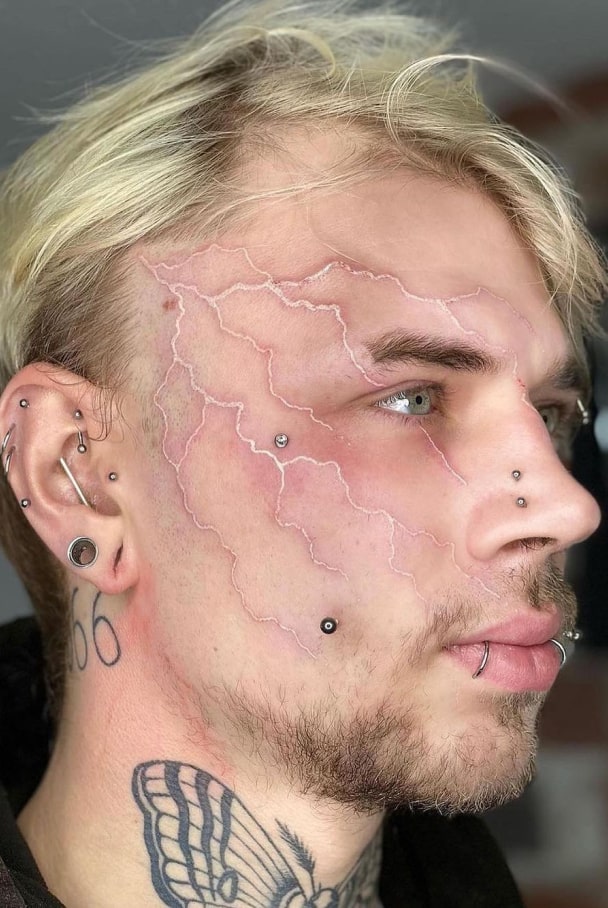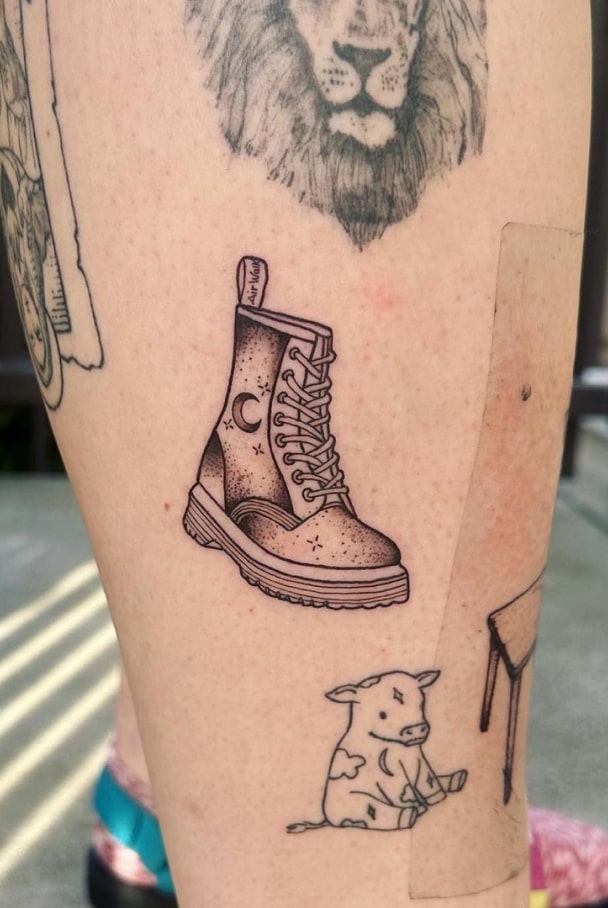The Mythical Symbolism of Dragons
In various cultures, dragons represent a wide range of attributes, from power and strength to wisdom, protection, and good fortune. Depending on the cultural context, the meaning of a dragon tattoo can shift dramatically.
Chinese Dragons
In Chinese culture, dragons are seen as symbols of power, wealth, and good fortune. They are often depicted as serpentine creatures with long, flowing bodies and can possess characteristics like horns, scales, and claws. The Chinese dragon is often associated with water and rain, which are essential for agricultural prosperity. The dragon in this context is a protector and an emblem of imperial authority. For someone with Chinese heritage or a connection to Chinese traditions, getting a dragon tattoo might signify their respect for these qualities or a desire to embody the strength and wisdom of the creature.
Japanese Dragons
In Japanese culture, dragons are often viewed as benevolent creatures that bring prosperity, protection, and longevity. Japanese dragons are typically associated with water, with the belief that they control rivers, seas, and rain. They also symbolize courage and strength. For individuals with Japanese roots or those inspired by Japanese culture, a dragon tattoo might be seen as a way to connect with their heritage and celebrate the positive traits these mythical creatures represent.
European Dragons
In European traditions, particularly in medieval and Christian contexts, dragons are often portrayed as fearsome, destructive beasts. They represent chaos, destruction, and the battle between good and evil. The dragon in European mythology is often an antagonist, a force to be vanquished by knights and heroes. However, some European cultures also associate dragons with wisdom and guardianship. For instance, the Welsh dragon is a symbol of national pride and strength. A European-style dragon tattoo might reflect someone’s personal connection to their culture, or it could be a way of embracing the duality of the dragon—both destructive and protective.
Other Cultural Depictions
Beyond these major cultures, dragons have appeared in the mythologies of various indigenous peoples, including the Aztecs, Native Americans, and even Norse cultures. In each of these traditions, dragons carry unique meanings, but they often embody themes of transformation, power, and spiritual enlightenment.
The Personal Significance of Dragon Tattoos
While dragons carry immense cultural weight, they are also deeply personal symbols. The decision to get a dragon tattoo can be influenced by a range of factors, from an individual's personal experiences and values to the connection they feel with the mythic creature.
Empowerment and Strength
One of the most common reasons people opt for dragon tattoos is to symbolize personal strength and resilience. Dragons, with their fierce and indomitable nature, can represent an individual’s own ability to overcome obstacles, face adversity, and emerge victorious. For those who have gone through challenging experiences or who identify with a fighter's spirit, a dragon tattoo serves as a constant reminder of their inner power.
Transformation and Rebirth
Dragons are often associated with transformation, regeneration, and the shedding of old skin. The dragon’s ability to fly, breathe fire, and sometimes take on multiple forms makes it a powerful metaphor for personal growth and the ability to reinvent oneself. This makes dragon tattoos particularly popular among people who have gone through a significant life change, such as recovery from an addiction, a career shift, or the end of a major life chapter.
Wisdom and Protection
For many, a dragon tattoo symbolizes the pursuit of wisdom and spiritual enlightenment. Dragons are often seen as wise beings who understand the deeper mysteries of the world, and their wisdom can be a guiding force for individuals who are on a journey of self-discovery or spiritual awakening. Additionally, dragons are protectors in many traditions, guarding treasures, secrets, and sacred places. People who choose dragon tattoos as symbols of protection often feel a personal connection to the dragon as a guardian spirit.
Cultural Connection
For individuals who feel a deep connection to their cultural roots, dragon tattoos can be a way to honor and celebrate their heritage. Whether it’s Chinese, Japanese, or any other cultural context, the dragon is a symbol that transcends time and place. A tattoo of a dragon can be a way to bridge the past and present, honoring one's ancestors or aligning with the cultural values associated with the creature.
The Design and Aesthetic Appeal of Dragon Tattoos
Beyond their symbolism, dragon tattoos are often chosen for their striking, dramatic aesthetic. The fluidity and grandeur of a dragon make it an ideal subject for body art. Whether tattooed on the back, arm, chest, or leg, dragon tattoos can be designed in a variety of styles, each contributing to the meaning and visual impact of the tattoo.
Traditional Styles
In traditional tattoo styles, dragons are often depicted with bold lines and vibrant colors, particularly in the Chinese and Japanese traditions. These tattoos can be elaborate, covering large portions of the body, such as the back or sleeve. The flowing, dynamic lines of a traditional dragon create a sense of movement and energy, making the design visually captivating.
Realistic and Modern Interpretations
For those who prefer a more contemporary approach, realistic or abstract dragon tattoos are also incredibly popular. Modern designs might focus on the intricate scales and details of the dragon, creating a lifelike representation. Alternatively, abstract or geometric designs might break the traditional mold, offering a unique, personal twist on the classic dragon motif.
Minimalist Dragon Tattoos
Some people may opt for a simpler, more understated dragon tattoo. A minimalist design can convey the same symbolic power without the need for elaborate detail. These tattoos often use clean lines or subtle shading to represent the dragon, creating a sleek and modern aesthetic.
Conclusion
Dragon tattoos are a perfect fusion of cultural significance and personal identity. Whether someone is drawn to the dragon for its symbolism of power, protection, wisdom, or transformation, or because they feel a deep connection to the rich cultural traditions it represents, these tattoos offer a profound way to express one’s individuality. They are more than just tattoos—they are living symbols of the wearer’s journey, resilience, and connection to the world around them. As the art of tattooing continues to evolve, the dragon remains a timeless and versatile design, offering endless possibilities for those who choose it to represent their story.








